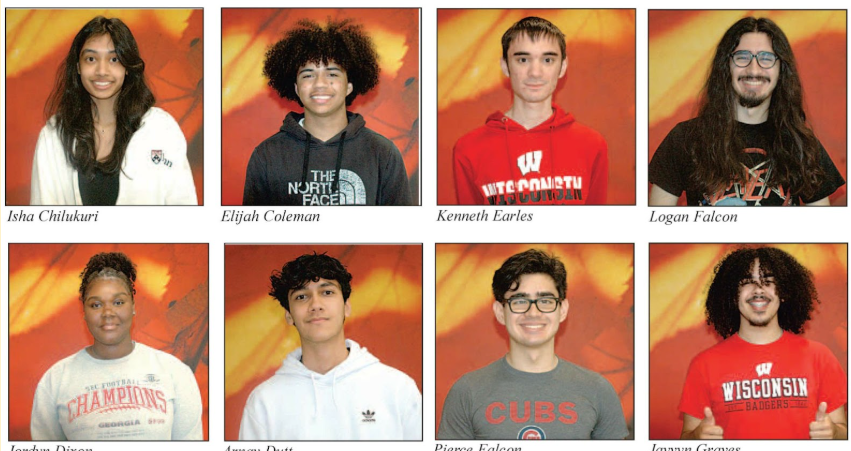I have always been confused by why every freshman has to take biology and every sophomore has to take chemistry at Middleton High School (MHS); to me, it seemed to discourage students who can go a step further from pursuing their interests with a more difficult class.
If students could skip math courses, why not science courses? My understanding was that science is very similar to math in that it is very simple to test one’s understanding of it, and therefore a placement test would be easy. In an effort to understand why these prerequisites are in place at MHS, I decided to interview ninth grade biology and AP Biology teacher Eve Kelly about why this is the case.
In an effort to first understand what dictates the class material, I asked Kelly what standards the biology teachers use on coursework. She explained that the biology teachers use the Next Generation Science Standards (NGSS) and standards from the Wisconsin Department of Instruction to choose course material related to core science practices. On the other hand, there are no strict guidelines around what constitutes honors coursework. Biology teachers try to introduce students to higher science, more advanced concepts in correlation to the normal units.
Many students have observed that ninth grade biology is similar to one of their previous middle school classes, which has led to questions on whether skipping one or more of these introductory courses could have a positive impact on students’ learning. Kelly disagreed, citing two main reasons that it could be harmful.
First, having students skip science classes would lead to a “loss of community” in the respective graduating class. Secondly, there are skills in science that cannot be evaluated by a placement test, like collaborating with others in labs or other science practices. With respect to creating community, the question of an embedded honors class in comparison to a separated normal class and an honors class has been very divisive, with research supporting each approach. There are proven benefits for a student’s academic achievement when separate advanced classes are used that embedded advanced classes cannot match.
Additionally, teachers have an easier time catering to separate groups in separate classes than if both groups were in one class. However, there can be issues raised at how to reliably place a student in an advanced science class when not all science skills can be tested in one exam. Therefore, it is reasonable at a very large school like MHS, which serves as the school with the most high school students in the state of Wisconsin, to advocate for differentiated instruction, as it allows for better instruction for a larger volume of students.
Additionally, it is true that there are aspects of science that simply cannot be tested with pen and paper, such as lab and practical skills. Because MHS strives to be as inclusive as possible, it makes sense to group all students of a grade into one class to make sure that no matter what, everyone who goes through MHS has the same fundamental skills.
Kelly acknowledged that there is work that can be done to structure biology honors with more depth to it, allowing students with more advanced content knowledge to feel intellectually engaged as well. In response to the idea of an integrated AP option to the introductory science courses, Kelly noted that though ninth grade biology and AP Biology have similar names, they are very different and combining them would be difficult.
Another point that Kelly brought forward was that what you learn in classes is not the only thing to consider: equally important are the “benefits for students, even highly motivated students, to being in class with their peers during what is a very pivotal time in life.” Kelly emphasized that content knowledge is not the ultimate purpose in biology and science courses; rather, there are many other skills involved. Allowing students to skip past this essential step would create more problems for them in their futures in real lab environments and workplaces where they need to collaborate with others.
Finally, we discussed whether MHS teachers have a responsibility to instruct students in advanced content knowledge beyond what may be taught in their current science class, like ninth grade biology. Kelly explained that MHS has physical resources and tools that are available to these students on request, but the science teachers’ capacity to help students only goes so far, and that in general, they need to cater to the majority of students.
After speaking with Kelly, it’s clear that the required science courses teach more than what may be obvious. Not only do these courses provide basic content instruction, but they teach students skills that are essential in the science field and beneficial to all.
Additionally, because MHS is such a large school, it doesn’t make sense for the science department to advance students beyond introductory courses when they cannot be certain that a student has all the necessary skills to take a higher science class. Embedded honors makes the most sense for MHS because of the large class sizes, creating space for students with strong content knowledge to challenge themselves. And for the select group of students that are very proficient in their science content knowledge along with a strong passion in pursuing science, then there are options outside of MHS that can help to advance their knowledge without the negative side effects that result from separating a grade.









